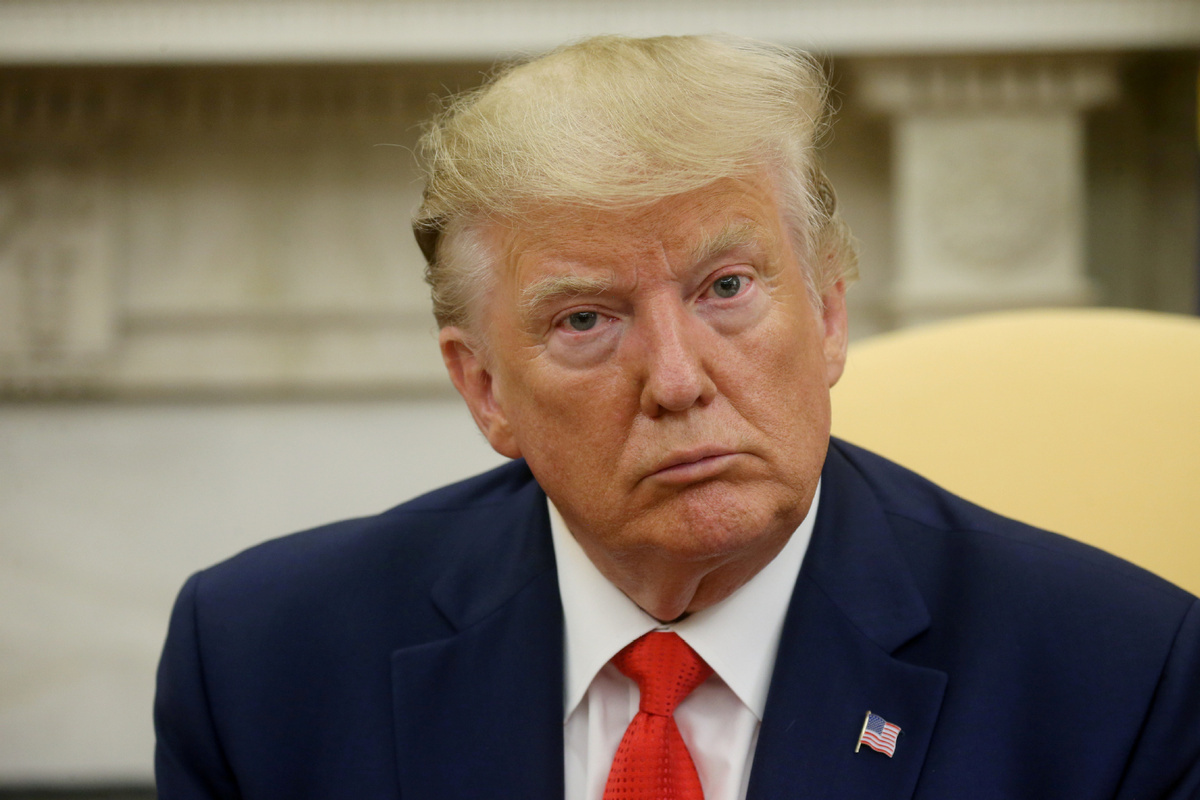By stigmatizing China, US leaders can't hide failure in anti-virus fight


It has been five weeks since the World Health Organization named novel coronavirus pneumonia COVID-19, a term that is now widely used across the world, including by European Union leaders in the speeches they have delivered in the past weeks.
However, that has not been the case with the top leader and top diplomat of the United States, as they continue to refer to it as the "Chinese virus" or "Wuhan virus", a stigmatization that the WHO has warned against. In naming the disease COVID-19, the international health body said it wanted to avoid referring to the virus by a geographical location, an animal, an individual or a group of people. In fact, WHO Director-General Tedros Adhanom Ghebreyesus said that giving a name to the disease means preventing the use of other names that can be inaccurate or stigmatizing.
So it's not surprising that the deliberate use of racist terms by top US officials has drawn condemnation from the Chinese Foreign Ministry and opinion leaders overseas.
Michael Swaine, a senior fellow and a China expert at Washington-based Carnegie Endowment for International Peace, called it "furthering the disgusting and frankly racist tactic of labeling COVID-19 a 'Chinese' virus".
The New York Times columnist Nicholas Kristof said, "there is a long and brutal xenophobic history of blaming foreigners for diseases, and we bungled our own response to COVID-19 so badly that we shouldn't make scapegoats of others".
And Jorge Guajardo, a former Mexican ambassador to China, criticized the US leader for using the virus to inflame racism.
The US leader has embarrassed himself trying to stigmatize China and distract the US public from the administration's bungling response to COVID-19.
This is no time for stigmatization as the world faces a "defining global crisis of our time" as Tedros said. A crisis like this tends to bring out the best, and worst, in humanity. Tedros cited the touching video clips of people applauding health workers from their balconies and the stories of people offering to buy grocery for older people in their community.
I have seen those video clips from Wuhan, Hubei province, and other Chinese cities, as well as videos of Italians singing songs from their balconies to show solidarity with health workers and neighbors during the lockdown of their cities.
On Monday, Tedros commented on my tweet about Chinese and Italians helping each other in times of crises, from the devastating 2008 Wenchuan earthquake when an Italian rescue team saved hundreds of lives in Sichuan province to a Chinese medical team comprising mostly experienced doctors from Sichuan being sent to Italy to help fight COVID-19.
"Heartwarming example of solidarity#Italy#China. We all need to unite and support each other in the fight against COVID-19, a common enemy," he commented on my tweet.
At the Monday press conference, Tedros said the amazing spirit of human solidarity must become even more infectious than the virus itself.
China, which has virtually contained the novel coronavirus outbreak, is lending a hand to other countries. It has sent medical supplies and medical teams to several countries to help fight COVID-19.
As one who has covered the WHO's "virtual" press conferences for more than a month, it's heartbreaking to see the situation deteriorating in many countries. If the world had heeded the repeated warnings of the WHO weeks ago to seize the window of opportunity to get prepared, many countries would have been in a much better position today.
The past days have seen more countries better respond to the outbreak by implementing unprecedentedly tough measures. But the global fight against COVID-19 won't succeed unless world leaders show solidarity with each other instead of trying to blame others for their own problems.
The author is chief of China Daily EU Bureau based in Brussels.

































